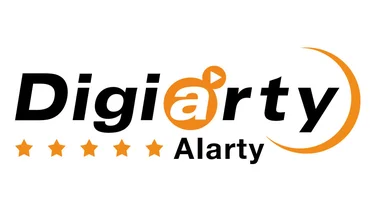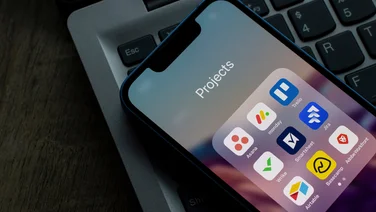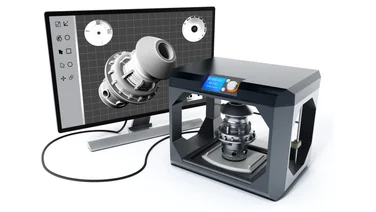To help us provide you with free impartial advice, we may earn a commission if you buy through links on our site. Learn more

Customer Relationship Management software allows sales teams to easily communicate with customers and potential customers, or leads, it also allows teams to set targets and create pipelines, as well as track ongoing relationships, keeping tabs on meetings, quotes, purchases, and any other related tasks or documents. A good CRM is essentially a smart and user-friendly interface for a clutch of databases that retain every detail of a business’ interactions with its customers, helping to ensure that no sale is missed or relationship neglected.
Our focus here is on CRMs for small-to-medium businesses – particularly for businesses on the smaller side or for dedicated sales teams in a medium-sized enterprise – and we’re specifically looking for CRMs that are free from jargon.
Below, you’ll find our best-rated CRMs to help support your sales staff, as well as a buying guide to help you prioritise the features you’ll need from your Customer Relationship Management tools.
Best CRM 2024: At a glance
| Best free CRM | Hubspot | |
| Best CRM interface | Monday | |
| Best CRM for small businesses | Freshworks | |
| Best for larger enterprises | Zoho |
How to choose the right CRM for your business
Once the preserve of massive international corporations, Customer Relationship Management suites are now accessible to businesses of every size, but the range of options can be overwhelming. So, whether you’re changing CRM provider or you’re looking to transition from an ad hoc agglomeration of spreadsheets and databases, here’s what you should look for in CRM.
Does CRM have to be costly?
You can pay anywhere between nothing and thousands of pounds per month for a good Customer Relationship Management suite, and often from the same companies. Freshsales and Hubspot both have compelling free tiers, which could easily meet all the requirements of a small business’ sales team. Zoho’s free tier is also surprisingly capable, although it’s a little less approachable.
At the other end of the scale, CRM services – such as Hubspot Enterprise – for large businesses with multiple internal and external sales teams can cost upwards of £50,000 per year.Most CRM SaaS (Software as a Service) suites that lack a free tier still offer an entry-level version for a very competitive fee, although there may be a minimum seat requirement. For example, Monday’s Basic CRM tier costs £8.50 per seat per month – working out to £102 per user annually – but requires that you subscribe to at least three seats, giving you a minimum entry-level cost of £306 per year. So, watch out for these minimum seat requirements when you’re comparing prices.
Zoho and Freshsales are more typical in their pricing, with both entry-level paid tiers starting at £12 per seat when billed annually (£144 per year), or slightly higher for a monthly plan.
What are the key features to look for in a CRM?
Key features that we would expect to see in any CRM include:
- contact management
- a sales pipeline to help track the progress of sales leads
- interaction tracking, so that any team member can see every interaction that’s been had with a lead or customer
Ideally, we would want to see both table views and drag-and-drop kanban board views for tracking your pipelines; email integration; analytics, particularly lead scoring and forecasting; integrations with third-party services; and workflow automation, so the CRM can automatically trigger responses to specified events.
How we test CRM suites
In order to test CRM suites, we load them with dummy data, including contacts, leads and sales pipelines. We then try to link them to a variety of email providers and other communication tools. We add users to our sales team, track interactions with leads and customers, and try out some of each CRM suite’s automations. We test first- and third-party extensions, and we refer to any available analytics to see what data is captured and presented. We also check how well the interface is presented on various screen sizes.
We specifically run through the setup and data import process for each CRM suite, testing to see how they handle different data formats, and how much help they provide to first-time users. We also look at how approachable any given CRM is likely to be for a company transitioning to a fully fledged sales suite for the first time – for example, what assumptions does the CRM make, and how much jargon would the user need to understand?
READ NEXT: Best CRMs for small businesses
The best CRM services in 2024
1. Monday Sales CRM: Best CRM for small businesses
Price: From £306/yr | Sign up at Monday

Monday is a stand-out modern CRM. Its automations – the processes that automatically trigger in response to specific events – and its integrations – extensions to add features or connect to other services – are both useful and easy to use. If some of its apps are limited, then that’s really only in comparison to full stand-alone products. For many sales-oriented businesses, particularly those that prioritise, Monday is fantastic.
Monday’s interface is fresh and spacious, it uses colour effectively and displays well on a range of monitor and window sizes. Both the interface and its documentation are relatively jargon-free too, making it a solid choice for businesses that are moving to a fully featured CRM for the first time.
The only area where Monday falls short is in email integration, which only works if your email provider is Google Workspace or Microsoft 365. There’s also no formal support for shared team mailboxes, although there are workarounds.
Monday doesn’t have a free tier – though it offers a 14-day free trial – and subscriptions have a minimum of three seats. That makes it one of the more expensive options if you’re running a microbusiness but, as soon as you have more than a couple of sales staff, Monday should be at the top of your list of services to try.
Read our full Monday Sales CRM review
Key features – Free tier? Yes; Minimum paid seats: 3; Email integration: Google and Microsoft 365 only
2. Hubspot: Best free CRM
Price: From £0/mth | Sign up at Hubspot

It feels almost unfair to give Hubspot the award for best free CRM when it’s also one of the best paid-for services around. But that free starting tier, which includes two user seats and functional versions of Hubspot’s most important features, means that smaller micro-enterprises can start using CRM without any initial outlay.
It’s surprisingly easy to get started with too, with clear, jargon-free language and a guided onboarding process that’s largely hassle-free. This is for the best, as the sheer amount of features can make Hubspot a little intimidating at any tier.
It’s also easy to be intimidated by the high price of the Professional tiers, but for small and medium-sized enterprises looking for a single tool to cover multiple business needs, from lead tracking to marketing and online sales, HubSpot fits the bill.
The CRM Suite Starter tier costs £45 per month for two users on a monthly rolling contract, or £27 per month if you pay annually, but it’s worth noting that all the paid-for tiers have the option to add as many free users as they like, and that these free roles will certainly suffice for some sales staff.
Read our full Hubspot CRM review
Key features – Free tier? Yes; Minimum paid seats: 2; Email integration: Yes (includes IMAP)
3. Freshsales: Best CRM for small businesses
Price: From £0/mth | Sign up at Freshworks

If Hubspot and Monday both seem heavy on enterprise-grade features, Freshsales might be just what you need. It’s designed with smaller businesses in mind but still has plenty of scope to grow with your sales team. Plus, its clear language and solid onboarding experience make it a good choice for admins who are transferring to a fully featured CRM for the first time.
The free tier gets you three user seats and includes basic contact, account, and deal management tools with their own kanban views, as well as integrated chat, email, and some telephony options.
If you need extra automation, such as sending emails or assigning potential sales leads to your team based on designated triggers, then you’ll want the Growth tier, which costs £12 per user per month when billed annually, or £15 per user per month when paid monthly. Multi-currency and third-party IP telephony support only appear in the more expensive Pro tier, which starts at £29 per user per month.
Freshbooks is really flexible when it comes to external services, email providers, and automated features like chatbots, and it punches well above its weight when it comes to equipping a small or growing business’ sales team with powerful features.
Key features – Free tier? Yes; Minimum paid seats: 2; Email integration: Yes (includes IMAP)
4. Zoho CRM: Big business sales at a small price
Price: From £0/mth | Sign up at Zoho

While our other recommended CRMs have a strong focus on approachability and ease of use, Zoho CRM is a drop-in replacement for an enterprise-grade CRM from the likes of Salesforce and Hubspot at around half the price per seat.
The free tier gives you three user seats and an array of basic CRM features that might suit a smaller team, with leads, accounts, contacts, meetings, calls, and kanban board views for your deals. The Standard tier then starts at £12 per user per month, while we did most of our testing on the Pro tier, priced at £18 per user per month, billed annually.
While it’s powerful and highly customisable, Zoho’s extensive user interfaces – and especially the admin interface – are somewhat obtuse, though we appreciated its ability to handle a shared sales email inbox, and there’s also a massive ecosystem of services and extensions with which to add features and connect other tools.
It’s a good choice for experienced CRM users who don’t mind a bit of industry jargon. But if all of this sounds intimidating – or simply overkill for your business’s needs – Zoho also has a small-business-specific CRM, called Begin, which packs in a wealth of features at an even more competitive price.
Read our full Zoho CRM review
Key features – Free tier? Yes; Minimum paid seats: 1; Email integration: Yes (includes IMAP)





